Although it is easier to create a mosaic using a temporary surface which allows you to make edits before gluing anything, many artists prefer to work directly on the backer and glue one tile at a time.
The key for making the one-at-time (direct) method work is to increase the working time of the mosaic adhesive by slowing its drying time.
The easiest way to do this is to keep a humidifier running next to your workstation, the closer the better.
Humidifiers
A traditional mechanical humidifier is usually adequate, but for cold winter days when the heat is running, a steam humidifier such as pictured below is best.
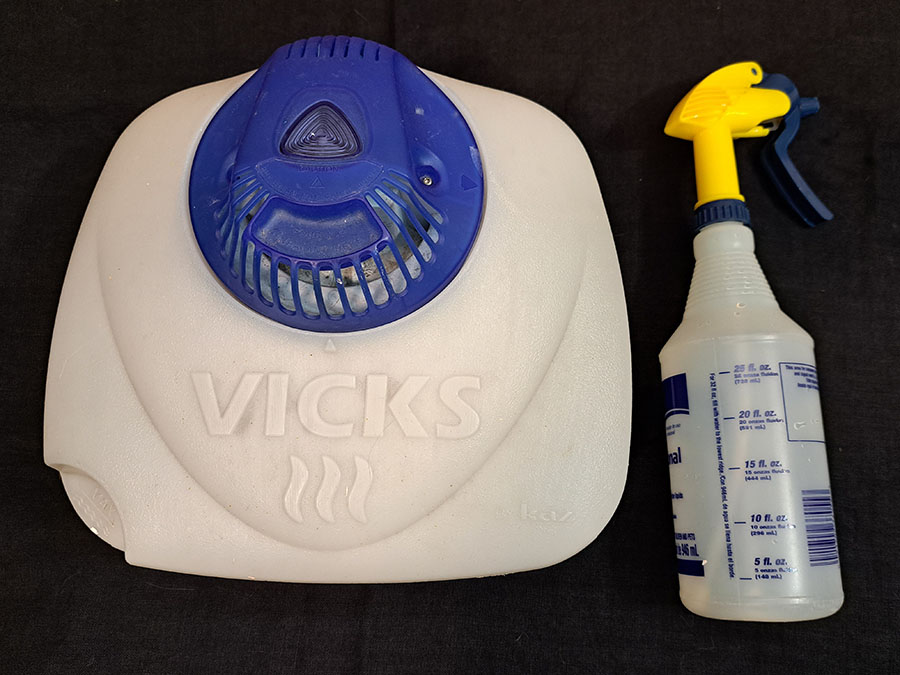
Another way to keep the air around your workstation humid is to mist the area with a spray bottle periodically, although you should cover the glue first to avoid getting water droplets in it.
Covered Containers
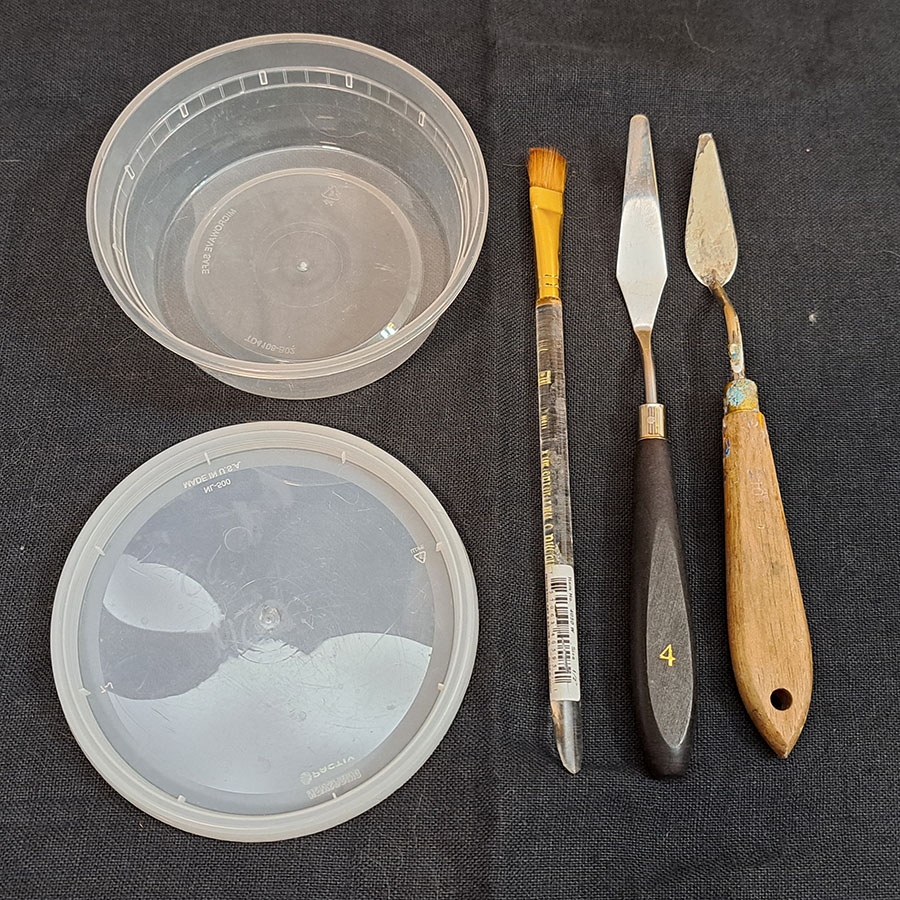
The glue itself should also be kept in a shallow basin that can be loosely or partially covered instead squirting some out onto a flat surface such as a saucer.
A repurposed food container such as seen in the photo above is perfect.
Note that I am not constantly opening and closing the snap-on lid as I work. Instead, I simply lay the lid on top without pressing it down to seal it.
You can even use a saucer with a bowl placed over the saucer as I have done. The point is that the container doesn’t need to be sealed as you work, but it does need to be easily opened and closed.
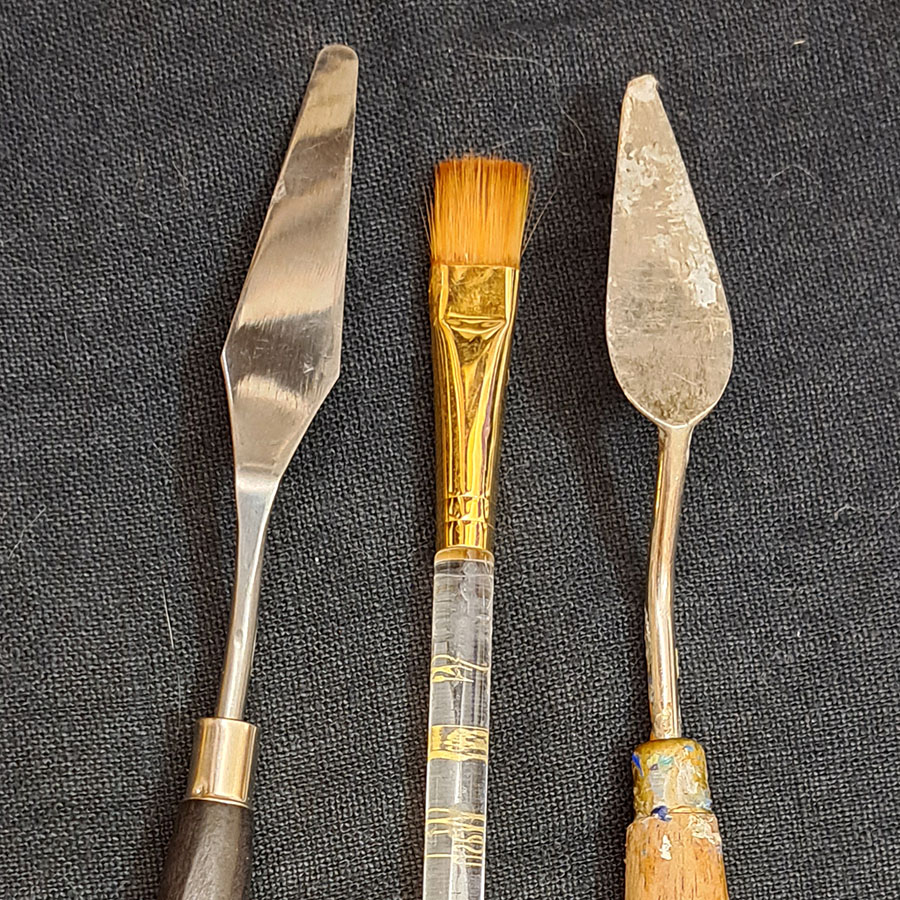
Artist Paint Brush
At this point, many readers are probably thinking, “But how do you easily reach into the small container to dip your tile into the glue?”
The answer is that you probably shouldn’t be dipping tile, which always gets more glue on the tile than desired plus glue on your finger tips.
Instead of dipping tile into the glue, use a small artists paint brush to paint glue onto the back of the tile.
Note that the brush pictured in this article is larger than what is optimal.
A tiny brush is best, while larger brushes such as this can be sloppy and allow too much glue to dry down in the bristles.
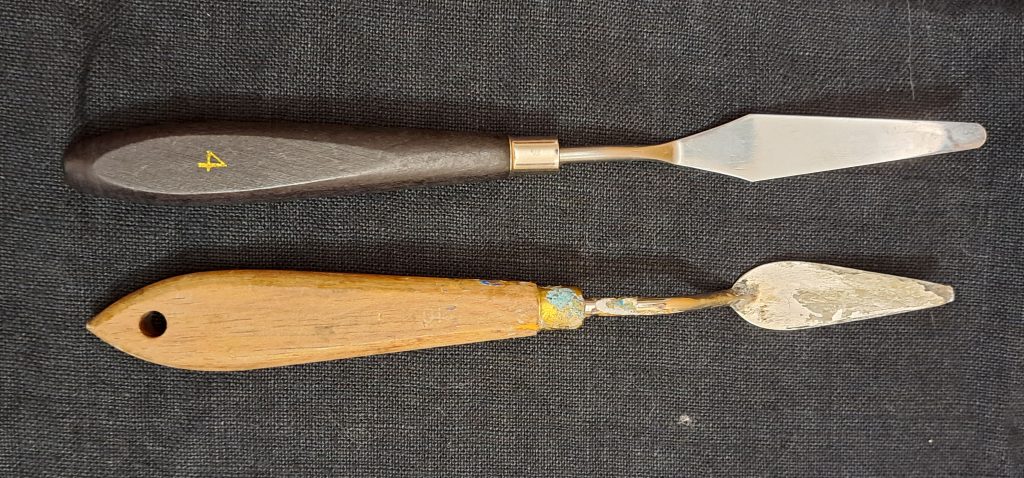
Palette Knives
Another thing I have borrowed from my painting studio is a pair of palette knives.
Palette knives are always used in pairs. Why? Because you can use one palette knife to clean the other and vice versa.
This is actually a big deal because I am not talking about final clean up.
Whether palette knives are being used for paint or adhesive, they constantly need to be scraped clean to prevent material from drying on them.
When you have a pair of palette knives, you can quickly scrap off the excess material and reuse it.
On the other hand, if you are continually wiping the excess off with a shop rag, then that material is wasted.
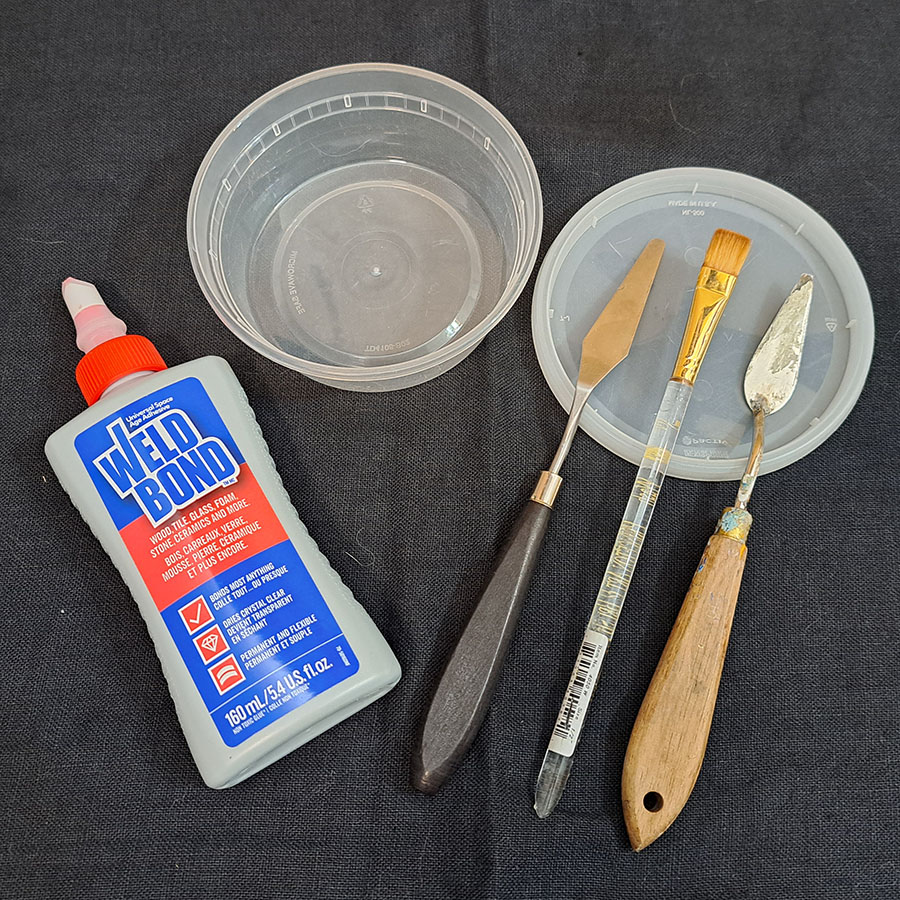

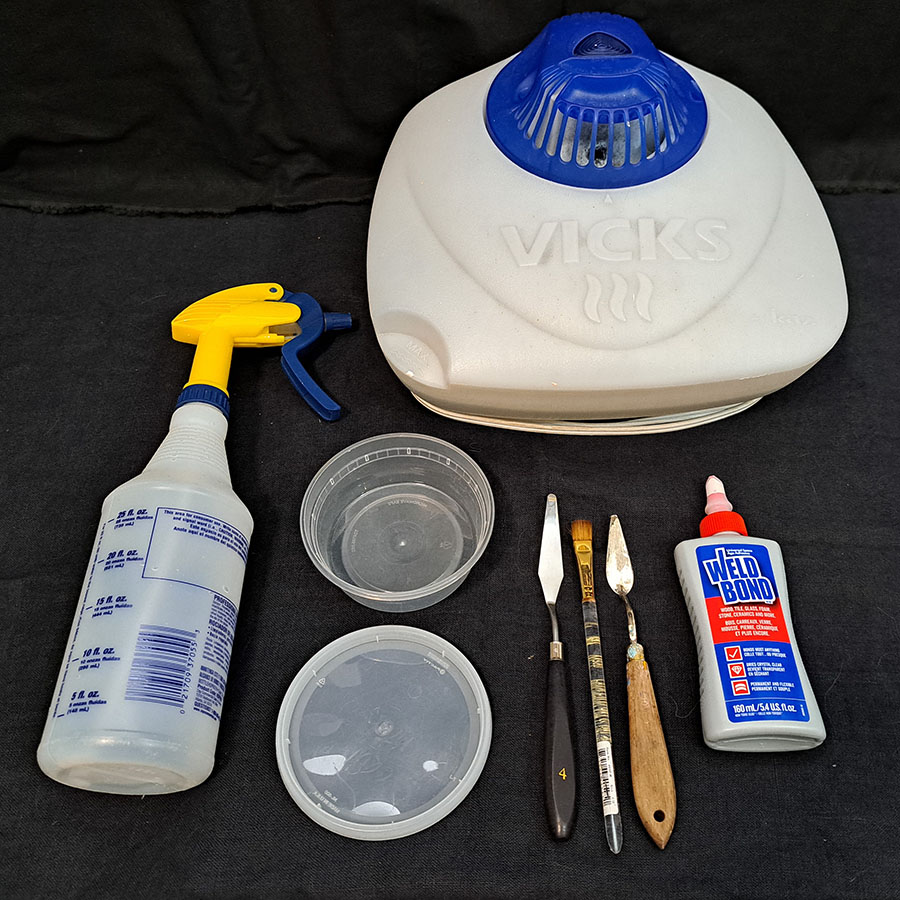
Leave a Reply